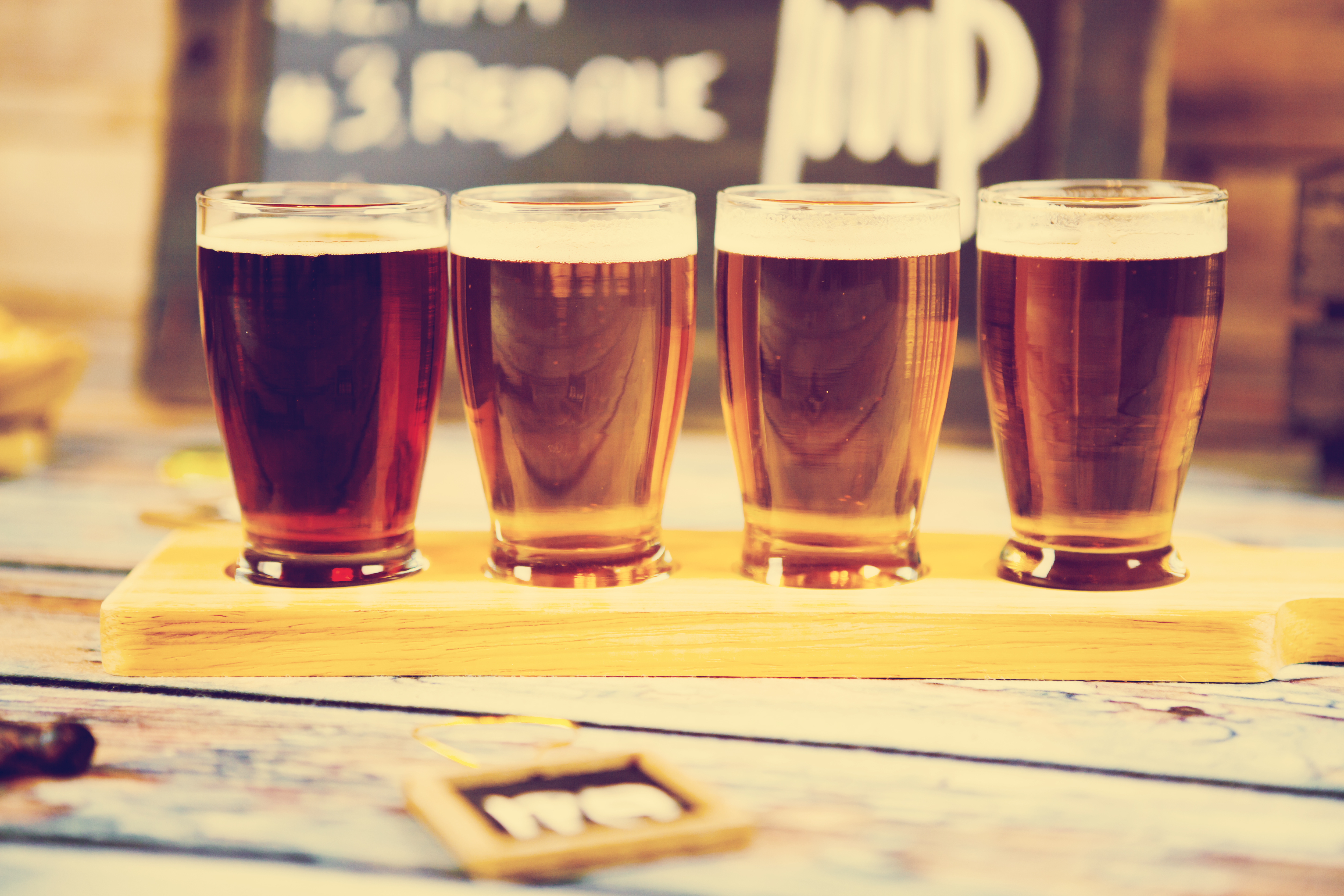Category Archive: Science on Tap
Happy National Nanotechnology Day!

Nanotechnology may still sound more fiction than science, but innovations with really (really, really) small particles are already impacting the world today. So on October 9th, the National Nanotechnology Initiative celebrates 10-9, which is the scientific notation for all things nano-sized. For an idea of how small a “nanometer” is, it’s one billionth of a meter, or roughly the length of one molecule of sugar. But how can something so small make such a big impact on daily life? Consider titanium dioxide, a naturally occurring mineral compound that’s so bright white it’s used to lend pigmentation and brilliance to everything from paints and paper to cosmetics and...
Read MoreHow Do Solar Eclipse Glasses Work? Chemistry.

In just a few hours, Americans will witness the first total solar eclipse to touch coast-to-coast in almost 100 years. If reactions to past galactic news are any indication, for a brief few days, interest in science and technology will spike. After all, how often does the average person find themselves wondering how NASA calculates the path of an eclipse years in advance, or what makes solar eclipse sunglasses so darn special? (Spoiler: many lenses reduce the intensity of visible light and UV rays using black polymer, a flexible resin infused with carbon particles. Score 1 for chemistry.) But it shouldn’t take a once-in-a-century event...
Read MoreNo, There Aren’t Dangerous Levels of Weed-Killer in California Wines

Moms Across America is at it again. This time, instead of trying to convince us vaccines cause autism or organic food can cure autism, the activist group is pushing a new myth: California wines contain dangerous levels of glyphosate. What is glyphosate? Glyphosate, marketed by Monsanto as Roundup, is an herbicide commonly used to kill weeds, particularly on crops that have been genetically engineered to resist it. (Farmers can use the herbicide to kill weeds, but not their crops.) While most studies show no link between glyphosate and cancer (it’s considered one of the safest herbicides on the market), the World Health Organization’s International Agency for Research...
Read MoreRaise a Mug for National Beer Day

April 7 is National Beer Day and to celebrate we’re highlighting some of our favorite posts debunking myths about beer. As we’ve pointed out in the past, moderate drinking—whether beer, wine, or spirits—has been linked to various health benefits, including reduced risk of heart disease. No matter which adult beverage you enjoy (or whether you prefer to abstain altogether), we think you’ll enjoy these past posts. No, there aren’t antifreeze chemicals in your beer—The Food Babe screws up again, showing her lack of scientific expertise as she gets the facts wrong about common ingredients in beer. Can a few beers a week...
Read MoreAnother Study Shows Heart Benefits of Alcohol

Just weeks after the United Kingdom’s Ministry of Health warned its citizens there is “no safe” amount of alcohol, a new study published in the International Journal of Cardiology suggests the heart benefits of moderate drinking. For more than 10 years, researchers from the Norwegian University of Science and Technology followed 60,655 Norwegian individuals with no history of cardiac problems. When the study concluded, 1,588 participants had developed heart problems. Researchers found those who drank rarely, abstained completely, or had alcohol abuse problems were most likely to develop cardiac problems. According to this study, the ideal amount of alcohol was roughly five...
Read MoreUK Says No Amount of Drinking is Safe. Science Says Otherwise.

Millions of people around the globe regularly consume alcohol. Because of its popularity, researchers have spent significant time and money studying the impact various levels of alcohol consumption have on our health. After mountains of research, the general consensus is that while too much drinking is deadly, moderate consumption of alcohol has benefits for many adults. For many years, government health agencies in Europe and the U.S. gave their citizens that standard advice: Alcohol can be part of a healthy diet in moderation and may have health benefits, but alcohol abuse can cause a host of health problems. Unfortunately, countries are...
Read MoreToo Much Wine Might Cause a Hangover, But Not Arsenic Poisoning

Earlier this year, a handful of wine drinkers filed a class action lawsuit against several wineries for knowingly producing wine contaminated with arsenic. They argued that because levels of arsenic in some wine exceeded the level of arsenic set by the U.S. Environmental Protection Agency for drinking water (something Americans of all ages consume in much greater quantities than wine), these wines pose a risk to consumers. We explained all the reasons why the lawsuit was ridiculous in our blog post here. Now, two new studies published in the Journal of Environmental Health confirms adults shouldn’t fear arsenic poisoning from drinking...
Read MoreThe Dose Makes the Poison

The Detroit News recently ran an opinion piece from the Center for Accountability in Science's Chief Science Officer, Dr. Joseph Perrone, discussing the importance of considering dose before deciding whether a substance poses a health risk. Too much of anything is rarely good for our health. As we recently learned from an Arkansas man's scary experience, drinking a gallon of iced tea every day could cause kidney failure. Even water can be deadly—drinking too much, too fast can lead to a dangerous condition known as water intoxication. The small risk of health issues from drinking way too much tea or water shouldn't...
Read MoreDangerous Levels of Arsenic in Wine? Not So Fast

The internet has been buzzing about a new lawsuit claiming that popular wine brands contain “extremely high levels of arsenic.” But a closer examination of the “research” behind this lawsuit and the scary headlines shows that wine lovers don’t really have much to worry about. The plaintiffs are comparing the level of arsenic found in wine with the U.S. Environmental Protection Agency’s limit for arsenic in water, which is seriously misleading. The EPA’s drinking water standard considers that water is consumed in high quantities, used for cooking and other purposes, and is consumed by more vulnerable populations like children. No one...
Read MoreRaise a Glass for Your Health

Good news for those of us who enjoy a drink with dinner: two newly-published reports are adding to the list of research documenting potential health benefits of light to moderate drinking. One study published in the European Heart Journal examined nearly 15,000 participants over several years and found that an average of a drink a day is associated with a lower risk of developing heart failure by 20 percent for men and 16 percent for women. While alcohol abuse is associated with heart complications, Dr. Scott Solomon, a professor of medicine at Harvard Medical School and senior physician at Brigham and Women's...
Read More